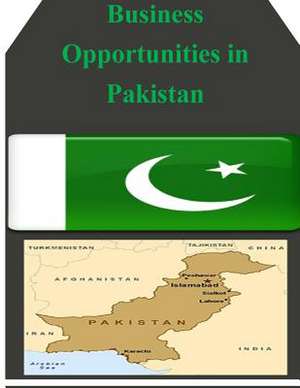Business Opportunities in Pakistan
Autor U S Dept of Commerceen Limba Engleză Paperback
Preț: 106.11 lei
Nou
Puncte Express: 159
Preț estimativ în valută:
20.30€ • 21.71$ • 16.93£
20.30€ • 21.71$ • 16.93£
Carte disponibilă
Livrare economică 28 martie-11 aprilie
Preluare comenzi: 021 569.72.76
Specificații
ISBN-13: 9781502324085
ISBN-10: 1502324083
Pagini: 100
Dimensiuni: 216 x 279 x 5 mm
Greutate: 0.25 kg
Editura: CREATESPACE
ISBN-10: 1502324083
Pagini: 100
Dimensiuni: 216 x 279 x 5 mm
Greutate: 0.25 kg
Editura: CREATESPACE
